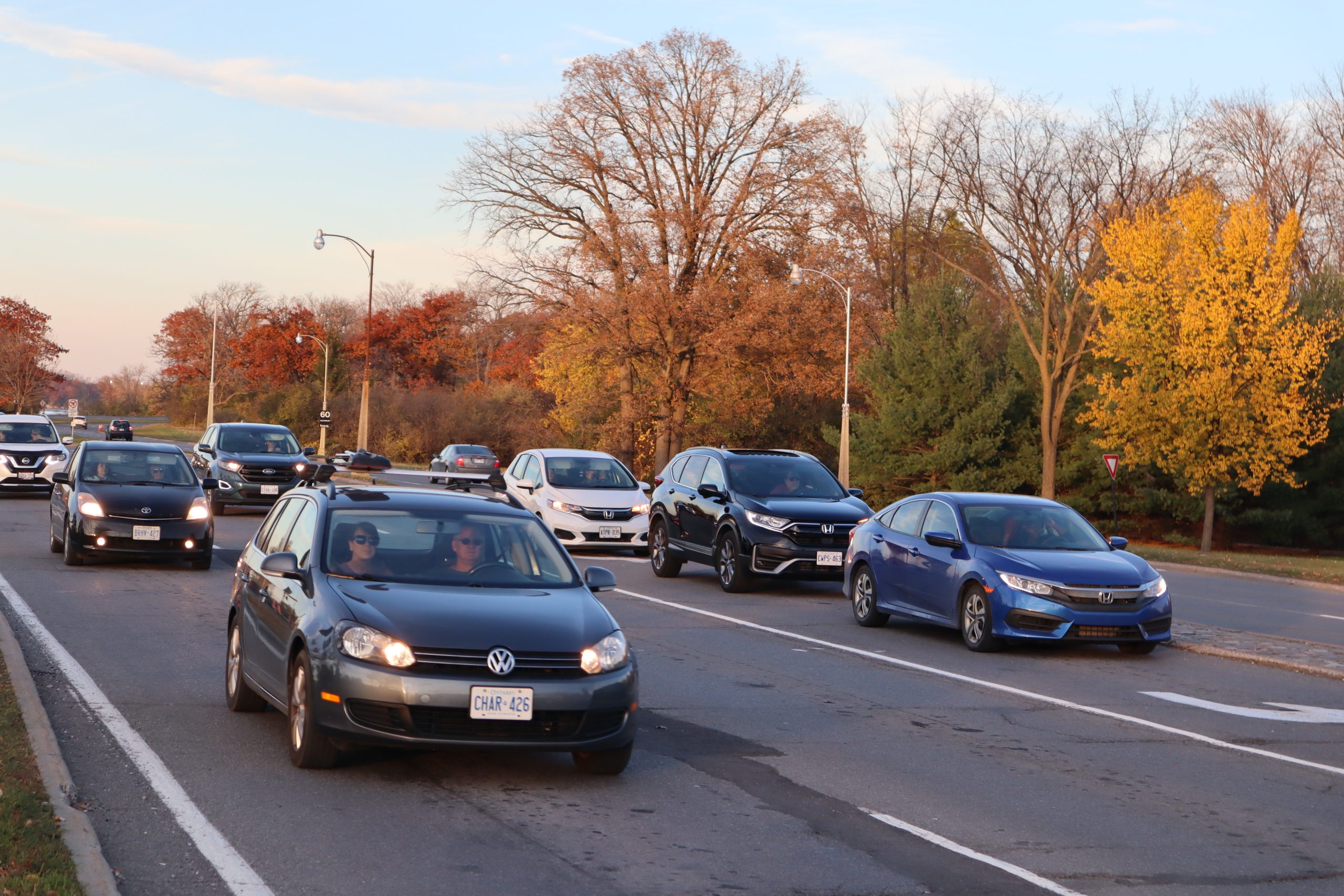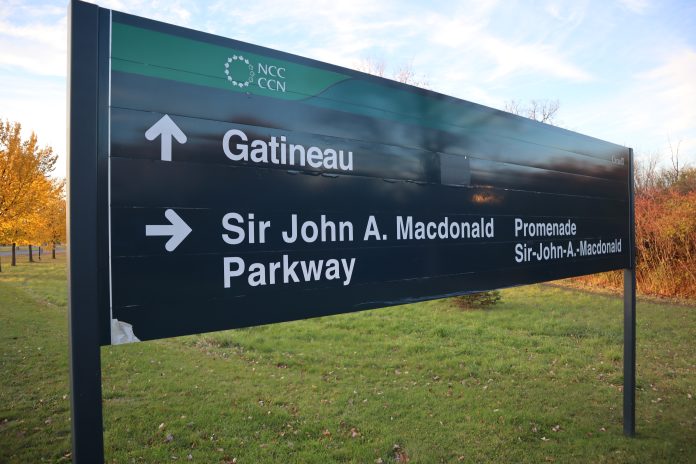By Charlie Senack
The Sir John A. Macdonald parkway is one step closer to getting a new name after years of public scrutiny.
In a board meeting on Oct. 4, the National Capital Commission (NCC) said they would announce a new name recommendation in Jan. 2023.
“Following the first National Day for Truth and Reconciliation in Fall 2021, the committed to modernize its Toponymy Policy,” said Sofia Benjelloun, a Strategic Communications Advisor at the NCC. “The new toponymy policy was presented to the Board of Directors in April 2022. At the time, the NCC confirmed that the Sir John A. Macdonald Parkway name would be the first asset considered under the new policy.”
A toponymy advisory committee was created in August of this year, and held their first meeting a month later.
Formerly known as the Ottawa River Parkway, the Sir John A. Macdonald name change came in 2012 when John Baird, foreign affairs minister at the time, decided to christen the popular four-lane roadway in recognition of Canada’s first prime minister.
A campaign was taking place at the time to reflect more of Canada’s history in Ottawa.
Public outcry started soon after, but became louder in recent years after the horrors of Canada’s former Indian residential schools came to light. It is estimated that at least 4,100 Indigenous children either died or went missing from the institutions. Macdonald has been considered the main architect behind the system.
Albert Dumont, a local poet laureate, made a pledge to walk the parkway every Truth and Reconciliation Day until the name is changed.
This Sept. 30, Dumont and hundreds of others wore their orange shirts and marched to honour those who were forced into the residential school system and to demand the name be changed.
“It’s about getting John A. Macdonald’s name off the parkway. He is guilty of genoicde,” Dumont told the Kitchissippi Times last month. “Macdonald’s name is everywhere else. I mean it’s on bridges, it’s on schools, it’s at airports. Does it have to be on that parkway?

There has been debate across Canada in recent years over whether or not to remove Macdonald’s name from significant places across the country. Statues of him have already been taken down or moved in Kingston, where Macdonald lived for many years and founded Canada.
Many Indigenous leaders, including Dumont, would like to see the name changed to the Kichi Zibi Parkway, which translates to “great river” in Anishinaabe. An orange banner bearing this name obscured the parkway’s signs during the Truth and Reconciliation events.
“Wherever the Ottawa Rivershed is, that was our territory – undisputed territory – everybody acknowledged that in the past,” said Dumont. “It is an appropriate name for sure.”
The local winter trail – which runs linear to the parkway – already adopted the new Kichi Zibi name last fall after consultation with the community.
Ottawa Centre MP Yasir Naqvi, who marched in the Truth and Reconciliation walk, told the Kitchissippi Times he believes the name should also be adopted for the parkway.
“I support a name change and have advocated for it to the NCC,” he said in an emailed statement. “As the NCC considers a new name, I would like to emphasise the importance of this decision being made in collaboration with Indigenous communities, namely the communities within the Algonquin nation, and individuals such as Elder Albert Dumont. We must listen, learn, and work towards walking the path of reconciliation.”
The NCC says when discussions over a new name begin, they will seek input from the public and First Nations communities.
“Over the coming weeks, our public engagement strategy will be further refined and shared with the committee for their input,” said Benjelloun. “This will contribute to a better understanding of the local history and topography, as well as the cultural significance of the location to the Algonquin people.”
With files by Maureen McEwan
